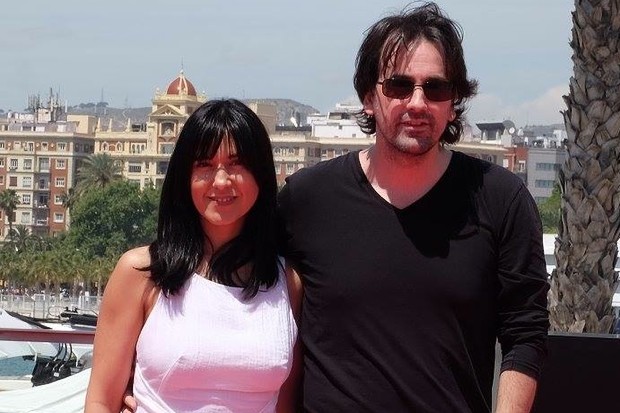Isa Campo, Isaki Lacuesta • Directors
“We’ve been working together our entire lives”
- Isa Campo and Isaki Lacuesta try their hand at a psychological thriller in their new venture, The Next Skin, a Spanish-Swiss co-production starring Emma Suárez, Álex Monner and Bruno Todeschini

The Next Skin [+see also:
film review
trailer
interview: Isa Campo, Isaki Lacuesta
film profile] is a real change of direction in the career of Isa Campo and Isaki Lacuesta, two directors who have been friends since they were film students. They collaborate on a regular basis, and their last joint venture was Dying Beyond Their Means [+see also:
film review
trailer
interview: Isaki Lacuesta
film profile]. Their new movie was presented at the 19th Málaga Spanish Film Festival.
Cineuropa: Did you expend all your anger and resentment with your previous film? Did it feel like your bodies were now begging you to change genre?
Isaki Lacuesta: That movie was one we could make at the moments when we were unable to film anything else: we shot it during weekends, by getting together with friends. We were like buddies meeting up to make a castle out of toothpicks, and it ended up becoming so huge that people didn’t see it that way, but rather like a very fragile and unstable house. We were all unemployed; we made it like a cooperative, investing all the money we could scrape together.
Why does The Next Skin begin with a messy sequence toying with temporal logic, when it subsequently disregards this device?
IL: Blending the present with the past allowed us to get into the mindset of the characters, and thus the viewer would have to activate their brain in another way: that fusion of the time periods from across the whole film had to be explicit right from the get-go. The sequence came about while filming; it wasn’t scripted. It occurred to us during the shoot, and we carried on filming with that idea in mind.
The viewer’s attention is really drawn to the presence of animals and hunting, which is incidentally a fairly normal occurrence in the rural setting where the action unfolds.
Isa Campo: We thought it was important for it to be a small town where everyone knew each other, and where there is no way of trying to have a double life, which does happen in a city. For an urban audience member, hunting and oxen may be quite surprising, but there, in the Pyrenees, it’s quite normal. It’s a movie that we could have shot in Isaki’s hometown of Banyoles, although it’s a bit bigger...
So, Isaki, you’re from the same place as Albert Serra, right?
IL: Yes, and to top it all, we went to nursery school together. My hometown is where there’s the lake and the negro of Banyoles; there are a lot of legends surrounding the place, with this semi-rural world that is trying to be more urban, with so many punks and a lot of theatre people. It’s an odd place.
Your film partly ties in with the subject matter of Changeling by Clint Eastwood, which starred Angelina Jolie.
IC: Yes, we saw all the movies in the genre apart from that one, but I do think it ties in in terms of the mother’s overwhelming need to get her son back.
IL: There’s a whole tradition of literature and films about impostors: there’s also a documentary, aptly called The Impostor [+see also:
trailer
film profile], which we bore in mind as a counter-model: Frédéric Bourdin, the real-life protagonist, was caught last time in Girona, in our province. That piece of news was one of the triggers for our movie, but that documentary was full of contradictions, even though it told a fascinating story.
How did you divvy up the tasks involved in the creative process for the film?
IC: We’ve been working together for so many years that we almost don’t need to discuss things: it’s always been that way, and it works well for us. In fact, we have written a story that has been dragging around since 2002: there’s already a producer on board, but he’s never happy with the screenplay. It’s a very expensive and grand film, so let’s see if we have time to focus on working on it; it’s tricky to decide on what tone it should have. It can be narrated from many different points of view, and we have to find which is the right one for it.
(Translated from Spanish)
Did you enjoy reading this article? Please subscribe to our newsletter to receive more stories like this directly in your inbox.















